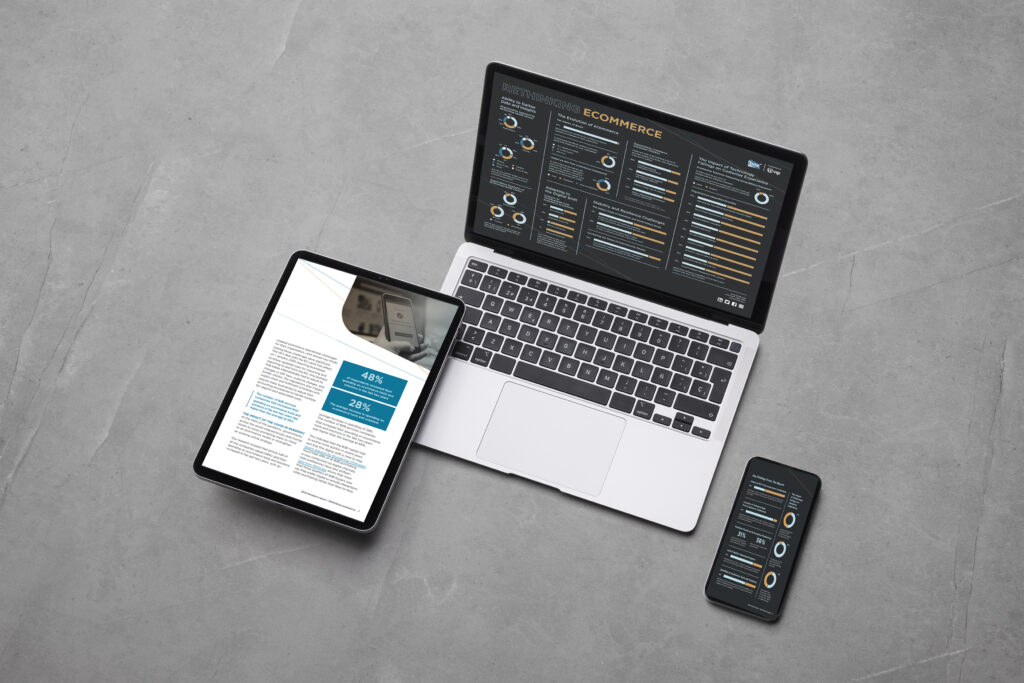
Technical debt – creating a real barrier to growth for ecommerce leaders
Technical debt – creating a real barrier to growth for ecommerce leaders
As the onset of the Covid-19 pandemic swept across the globe, impacting almost every industry and changing the way most consumers lived their lives, brands had to adapt quickly to these changes and as such looked to new ecommerce investments as a means to reach rapidly shifting digital behaviours to bridge gaps in revenue and retain customer loyalty.
Many brands are now facing the fact that shortcuts and compromises taken at the start of the pandemic to implement new technologies and tools quickly, are now building technical debt which is beginning to compromise the performance, experience, security and scalability of their systems (Mckinsey).
Technical debt can quickly amass during a period of change and our recent research study found that 88% of ecommerce leaders were concerned about their ecommerce investments creating technical debt (Box UK, Rethinking Ecommerce 2022) and what the impact of that debt would be on their ability to be more agile and innovative in the future.

What is technical debt?
Technical debt is the term given to the measurement of cost and impact to a business created by taking shortcuts within the development process or by reducing the system requirements due to time or resource constraints. (productplan.com) In other words; it’s the cost of the trade-off organisations have made in implementing short term solutions in reaction to the needs of ‘speed to market’.
What is the impact of amassing technical debt?
Technical debt can have a profound effect on a multitude of different areas, with performance and experience being critical factors to brands looking to succeed in digital commerce. This will not only have an impact on performance and loading times of a site but also on the ability to manage large amounts of traffic in peak periods and spikes in demand (clearlaunch.com). Technical debt causes sites to become clunky and slow which has a profound impact on the user experience, equally technical debt can have a negative impact on site metrics such as conversion rates and click through rates.
Our study reveals that on average a 10% loss in revenue is suffered by businesses due to downtime and website performance. With consumers looking for a consistent experience across all touch points, a poor performing site or incomplete customer experience can be the reason many potential customers divert loyalty to the competition.
88% of ecommerce leaders were concerned about their ecommerce investments creating technical debt
Rethinking ecommerce – Research Report 2022
Are brands taking the ‘head in the sand’ approach to technical debt and performance?
Although a large majority of ecommerce leaders are concerned about the build up of technical debt from new ecommerce investments, a staggering 31% still fail to check the performance of their ecommerce operations within a three month window (Box UK, Rethinking Ecommerce 2022).
Given that most ecommerce leaders from our research are already experiencing downtime and performance related issues, it’s surprising to find that nearly three quarters (72%) are confident they can cope with unexpected demand fluctuations and spikes in traffic at short notice.
This indicates that leaders may be ignoring performance as a key metric or are even unwilling to acknowledge a problem deriving from performance related issues. This also suggests that some businesses may even be unaware they are experiencing performance issues and downtime because they lack the data insights and visibility across their platform to identify them and their cause.

How can brands overcome building technical debt as they add elements to their digital platforms?
Taking an iterative approach to digital transformation rather than a whole scale ‘one time’ shift enables organisations to focus on those areas that will make the biggest impact. Similarly, by adopting a strategy of continuous improvement and making small changes often teams can strike a balance between updating the backlog of backend related IT while simultaneously implementing new features and elements to their ecommerce platforms – those that will deliver ROI sooner.
The average timescale for ecommerce infrastucture becoming outdated is 2.5 years with such a rapid shift in technological advancements, a traditional multi-year development roadmap would quickly become outdated before implementation, rendering the platform useless to the current needs of the market at that time.
This is the very reason why being able to make incremental changes quickly provides businesses the flexibility and agility needed to adapt to changes in the market in real-time (atlassian.com), and enables them to stay ahead of the competition.
Data and insights are the key to informing decisions across any business, with regular ‘health checks’ being the key to continuous improvement. Checking on elements of your platform regularly ensures you can test the effectiveness of your adaptations and reduce the risk of amassing technical debt.
As more and more organisations shift to a consumer-centred strategy, there’s nowhere to hide from the digital shift that’s driven by a need to deliver frictionless and authentic experiences, the time therefore is now for organisations to redress the balance between moving fast and long term sustainability.

Rethinking eCommerce Research Report
Overcoming pain points and challenges for a business fit for the digital future.
See how Box UK could help you overcome your ecommerce challenges
At Box UK our clients are able to leverage our ecommerce development experience which spans over 2 decades helping enterprise level businesses overcome challenges to build stable and resilient digital platforms capable of handling high volumes of traffic and transactions.
We deliver and maintain ecommerce platforms which are high performing with a focus on page speeds, making it a perfect fit for the enterprise. Our expertise in multilingual and multi-site installations support our clients in expanding their global reach into new markets, which has been demonstrated with clients including OKdo and RS Components.
Have a project you’d like to discuss?
Give us a call on 020 8098 2093 or fill in the form and we will get back to you.